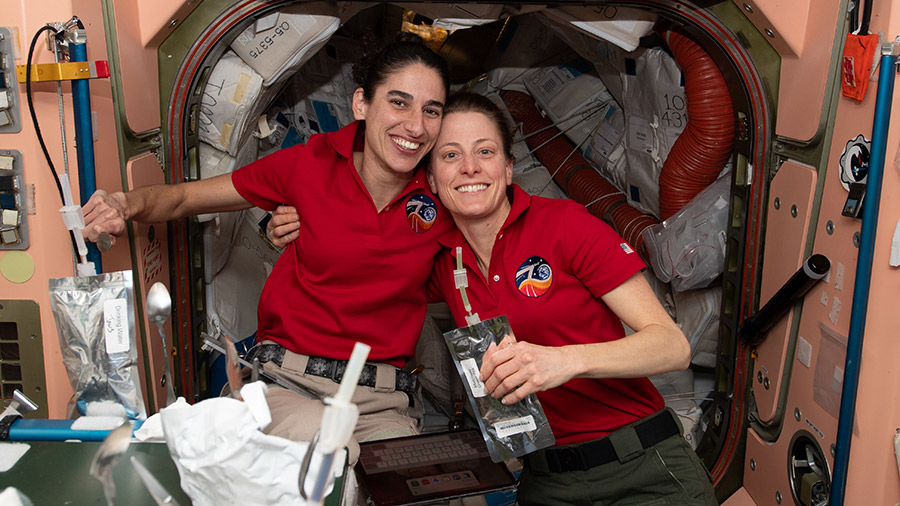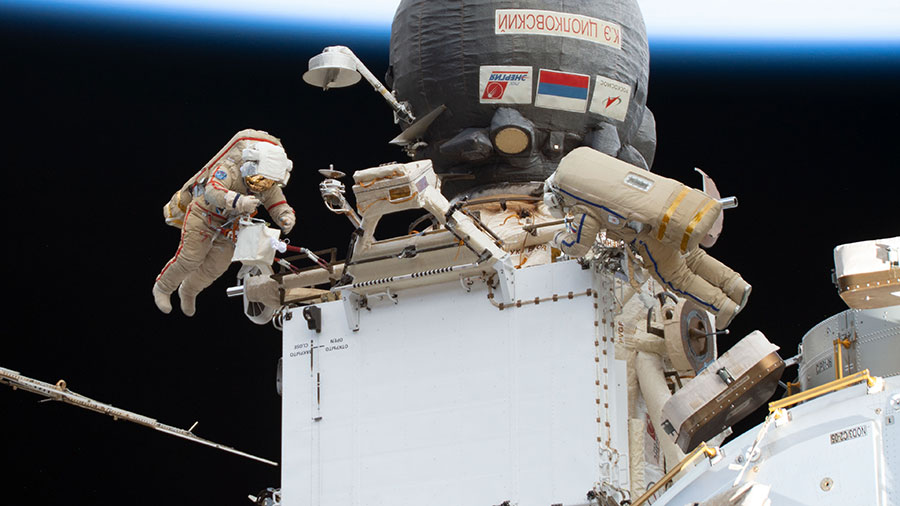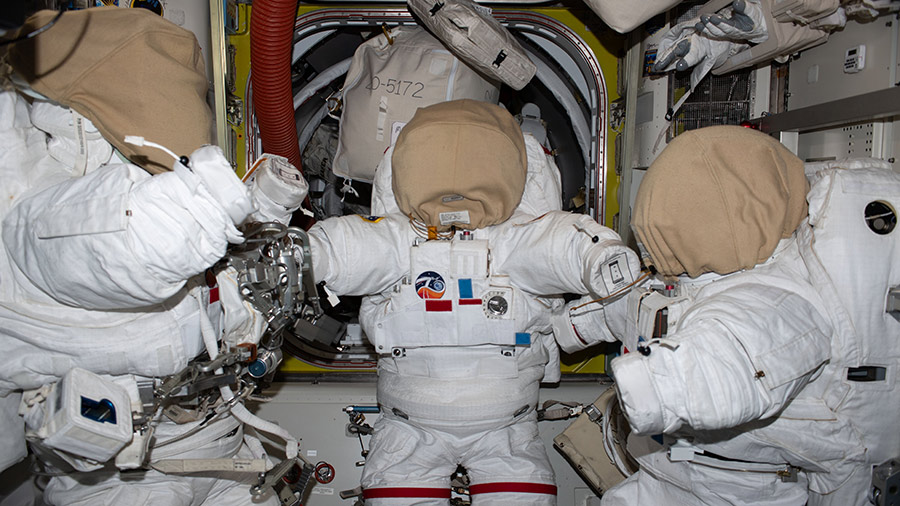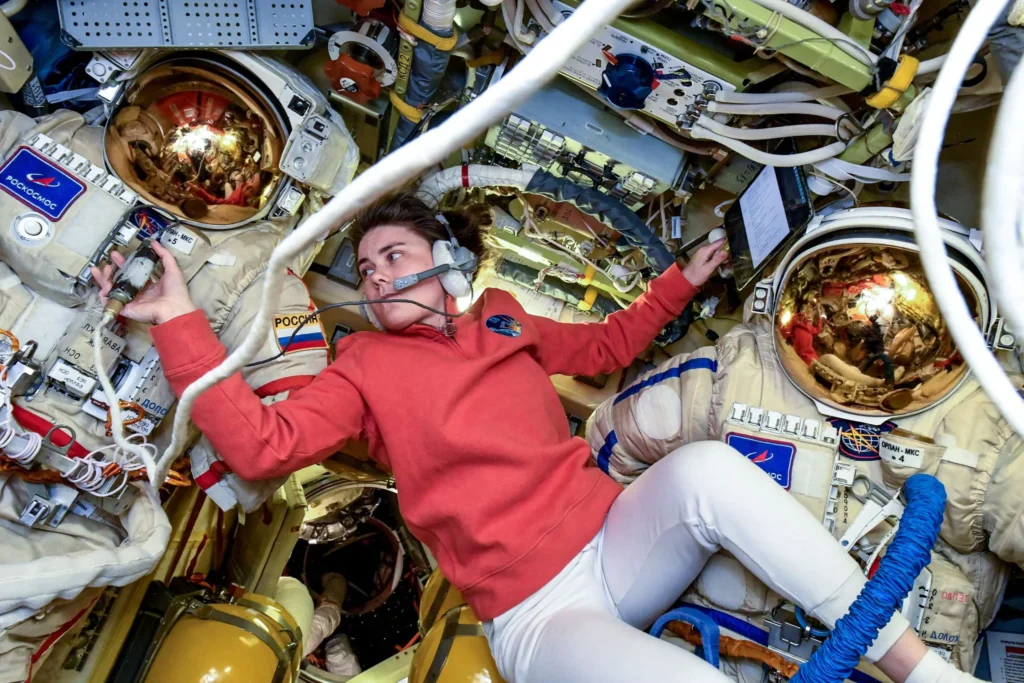
A host of biomedical studies were underway aboard the International Space Station on Tuesday to help doctors understand the effects of microgravity on the human body. The Expedition 70 crew also continued its ongoing cargo transfers and lab maintenance activities.
Blood vessel scans took place throughout the day on the orbital lab providing researchers data revealing how astronaut’s adapt to long-term missions in microgravity. NASA Flight Engineer Jasmin Moghbeli started first attaching electrodes to herself and scanning her right leg’s femoral artery with an ultrasound device. Doctors on the ground monitored the scans as they were being downlinked in real time. Results may provide insights into space-caused accelerated aging-like symptoms seen in astronauts’ arteries.
During the afternoon, ESA (European Space Agency) Commander Andreas Mogensen scanned the neck, shoulder, and leg veins of NASA Flight Engineer Loral O’Hara. Scientists monitored the data as it was downlinked using the Ultrasound 2 device. Observations may lead to countermeasures lowering the increased risk of cardiovascular disease in space.
Mogensen earlier stocked the food pantry in the Unity module and inspected the advanced resistive exercise device. O’Hara swapped optical fiber samples inside the Microgravity Science Glovebox and installed the Spaceborne Computer-2 to demonstrate its faster speeds and artificial intelligence capabilities. Moghbeli cleaned the Veggie facility hardware following the completion of the APEX-10 plant-microbe study.
Astronaut Satoshi Furukawa from JAXA (Japan Aerospace Exploration Agency) spent his day contributing to the CIPHER experiment, a suite of 14 human research investigations. He began his day collecting a blood sample, spinning it in a centrifuge, then stowing it in a science freezer. Next, he took a cognition test and a robotics test measuring his brain function in space. At the end of his shift, Furukawa collected a urine sample and stowed it in a science freezer for later analysis. CIPHER seeks to provide a better understanding of the physiological and psychological changes crews may experience while living and working in space.
Two cosmonauts, Oleg Kononenko and Nikolai Chub, spent Tuesday unpacking the newly arrived Progress 87 cargo craft. The Roscosmos resupply ship docked to the Zvezda service module’s rear port on Saturday morning delivering almost three tons of food, fuel and supplies to the station crew. Flight Engineer Konstantin Borisov spent his day checking ventilation equipment in the Zarya module then measured the vibrations Zvezda experiences while orbiting Earth.
Learn more about station activities by following the space station blog, @space_station and @ISS_Research on X, as well as the ISS Facebook and ISS Instagram accounts.
Get weekly video highlights at: https://roundupreads.jsc.nasa.gov/videoupdate/
Get the latest from NASA delivered every week. Subscribe here: www.nasa.gov/subscribe




